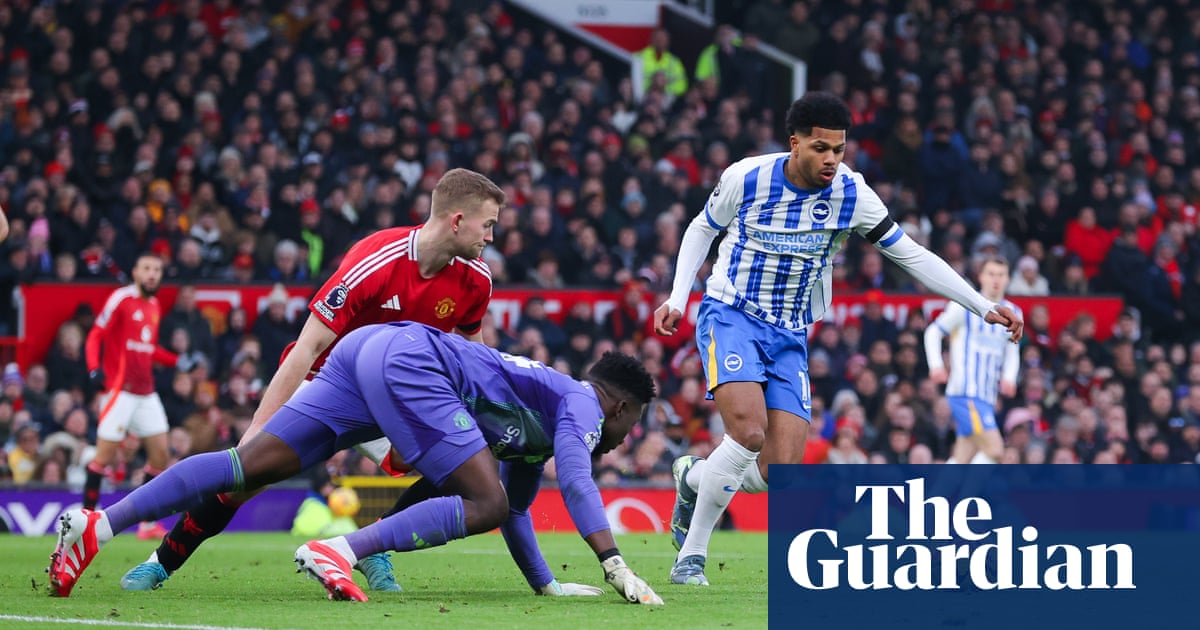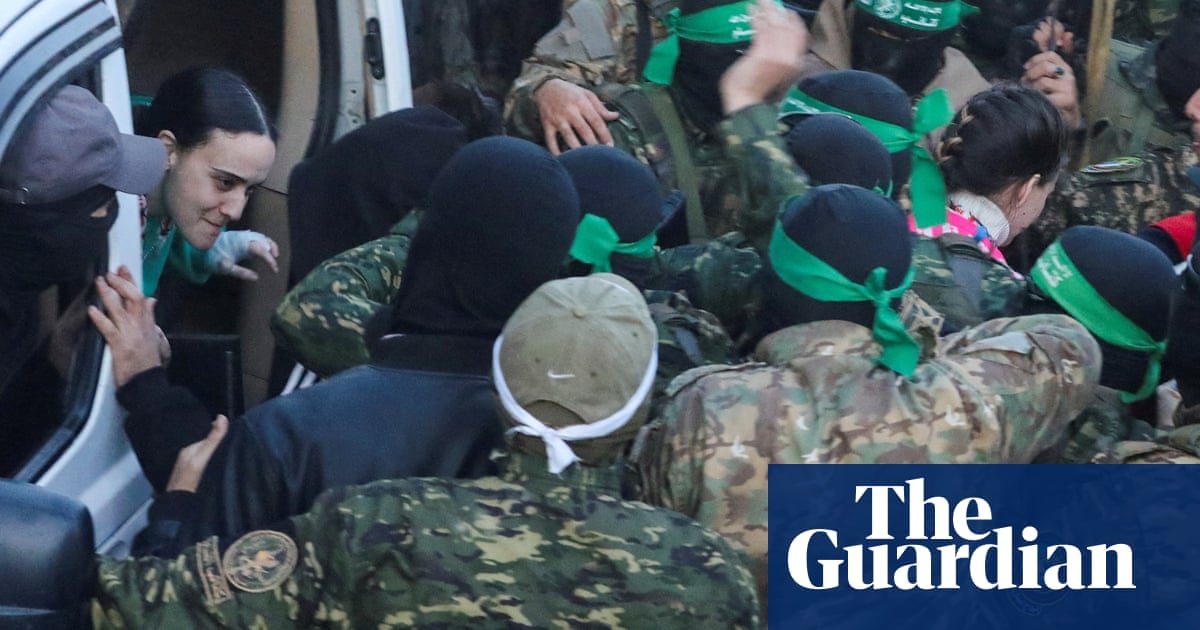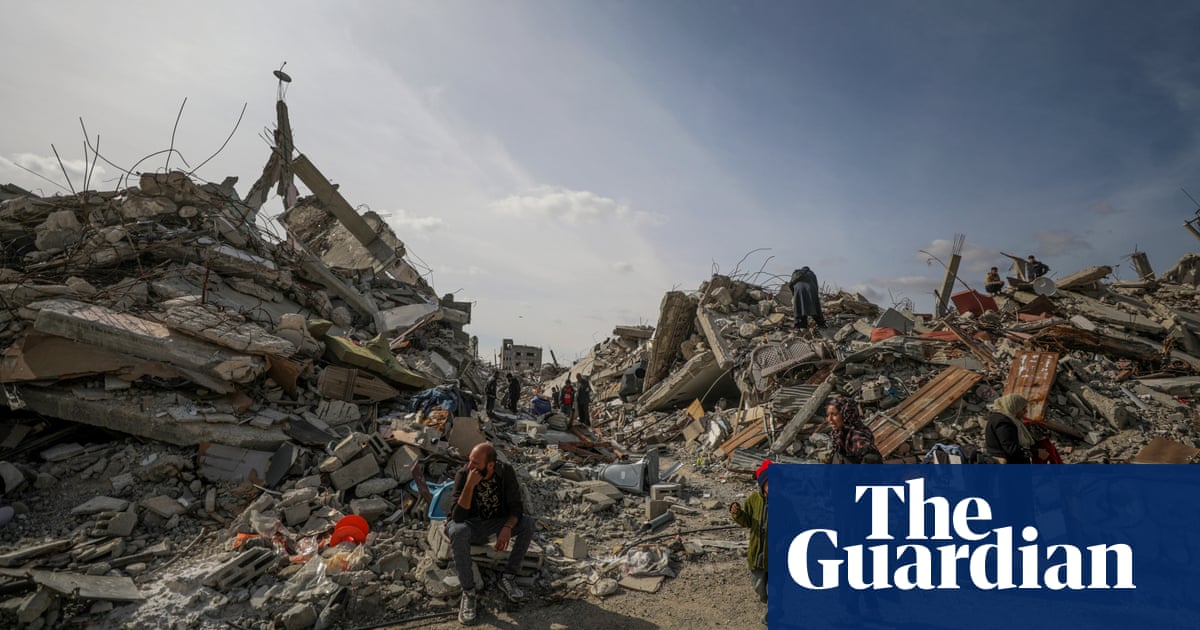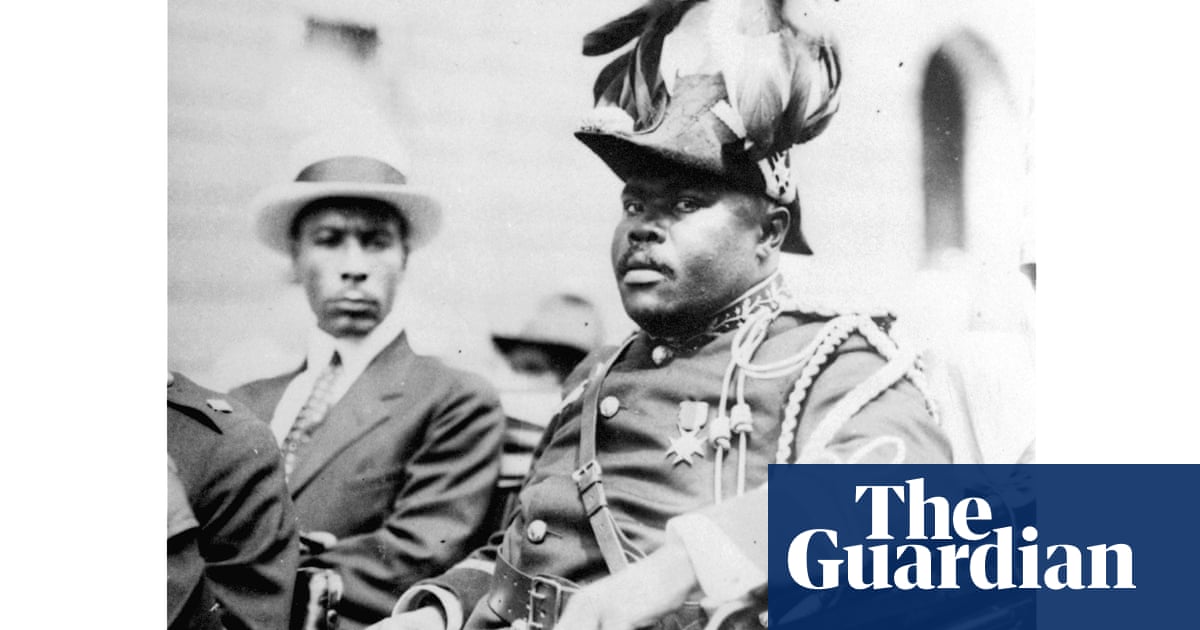Eight years ago, indiscriminate Russian airstrikes helped the forces of the Syrian president, Bashar al-Assad, drive rebels from Aleppo – a crucial turning point in the country’s civil war, which has largely been in a state of stalemate since 2020.
Over the weekend a stunning rebel offensive seized Aleppo again – and the Assad regime now faces its greatest threat in years. Here’s what you need to know.
What’s happened in Aleppo?
The new offensive in Syria began on Wednesday when rebel groups claimed to have swiftly seized control of a military base and 15 villages held by government forces in north-western Aleppo province. The rebels, led by the jihadist group Hayat Tahrir al-Sham (HTS), cut off the main highway from Damascus to Aleppo. Assad’s ally Russia launched airstrikes in response.
By Friday night, HTS fighters had progressed from their base in the countryside to the outskirts of Aleppo, and on Sunday they appeared to have complete control of the city. The Syrian military was rushing reinforcements and equipment to Hama province amid fierce fighting as the rebels attempted to push south towards the regional capital there. Meanwhile, Syrian and Russian airstrikes have been pummeling opposition controlled areas.
What is the history of Syria’s civil war?
In 2011, pro-democracy demonstrations – part of the Arab spring – were crushed by Assad’s forces. The resulting unrest led to an armed uprising that eventually morphed into a fractured civil war with many rebel factions, backed by regional players with competing agendas, and the initial demands for a new, pluralistic settlement largely eclipsed by extremist jihadist organisations including an al-Qaida affiliate and Islamic State.
Whatever the agenda of those rebel groups and however ruthless some of them may be, many more civilians flee government-held territory for opposition areas than the other way around.
The war has killed about half a million people, and almost 7m more have fled the country as refugees. Those who remain are enduring a lasting state of economic crisis. While the rebels once appeared to pose a serious threat to Assad’s rule, he has gradually regained control of about 70% of the country with crucial support from Russia and Iran.
The rebels have been confined to parts of Syria’s north and north-west, where they hold on with the protection of bordering Turkey. The war has never completely stopped, but it has largely been in stalemate since Russia’s Vladimir Putin and Turkey’s Recep Tayyip Erdoğan brokered a ceasefire in the north-western Idlib region in 2020.
Why has the conflict restarted?
HTS appears to have been preparing for this operation for some time, with reports of major military exercises for several weeks in the autumn and predictions of a major offensive. Experts say HTS’s forces are significantly more professional than they were at the time of the ceasefire, with a new military college established and full control of local governance in its strongholds.
The other critical factor in the new advance is the wider geopolitical situation and a sense that Assad’s allies are distracted or weakened. Hezbollah, an Iranian proxy that has previously been a crucial element in Assad’s forces, has been decimated by Israel’s operations in Lebanon. While Russia remains a big player and Putin will not countenance defeat in the region, Moscow’s forces are undeniably bogged down in Ukraine.
Israel has dramatically escalated airstrikes against Iranian forces on the ground in Syria and has also hit weapons depots in Aleppo. Donald Trump launched airstrikes against Syrian military sites during his first term as US president alongside a broader policy of pressure on Iran. Dareen Khalifa, a Syria expert at Crisis Group, told the FT that all of this presented a “once-in-a-lifetime opportunity” for the rebels.
The offensive may also have been motivated by recent Russian and Syrian airstrikes against rebel areas, which could have been intended as a precursor to a wider military campaign. And there was a limited window of opportunity for the operation. Haid Haid, an analyst, said: “If the rebel forces waited too long, the regime would have been able to reinforce their frontlines as Hezbollah forces are no longer busy with the war in Lebanon.” Notably, the offensive began on the same day that the truce in Lebanon came into effect.
Who are Hay’at Tahrir al-Sham?
The founder of HTS, Abu Muhammad al-Jolani, was once a participant in the Iraqi insurgency against the US as a member of the group that eventually became Islamic State. In its former incarnation as Jabhat al-Nusra or the Al-Nusra front, HTS later declared allegiance to al-Qaida. It eventually publicly broke those ties in 2016 and rebranded as Hay’at Tahrir al-Sham, or Organization for the Liberation of the Levant.
HTS is now the most powerful rebel faction in Syria and controls Idlib, where about 4 million people live, with command of an estimated 30,000 troops.
While it is designated as a terrorist group by the US, Turkish intervention has been aimed at constraining its operations and it is not thought to have global ambitions. There are nonetheless serious human rights concerns in the area it controls, including executions for those accused of affiliation with rival groups and over allegations of blasphemy and adultery.
How will Assad respond?
While HTS’s advance has taken place at remarkable speed, there are good reasons to think that the Assad regime and its allies will fight back – even given the constraints imposed in other military spheres. Ibrahim al-Assil, a senior fellow at the Middle East Institute in Washington DC, said: “The actual battle hasn’t started yet. Assad might be applying an old strategy that worked for him before: withdraw, regroup, fortify and counterattack. A key test for the rebels’ evolution will be to know when to stop.”
With regime forces consolidating in Hama and Russian airstrikes likely to intensify, HTS’s strength will be severely tested in the days and weeks ahead – and negotiations between Turkey and Russia are likely to prove as important to the eventual outcome.
Many experts fear that Assad will turn to chemical weapons, just as he did to devastating effect in the darkest days of the civil war. If so, whatever successes the rebels manage to consolidate could come at a horrifying cost.

 1 month ago
33
1 month ago
33













































